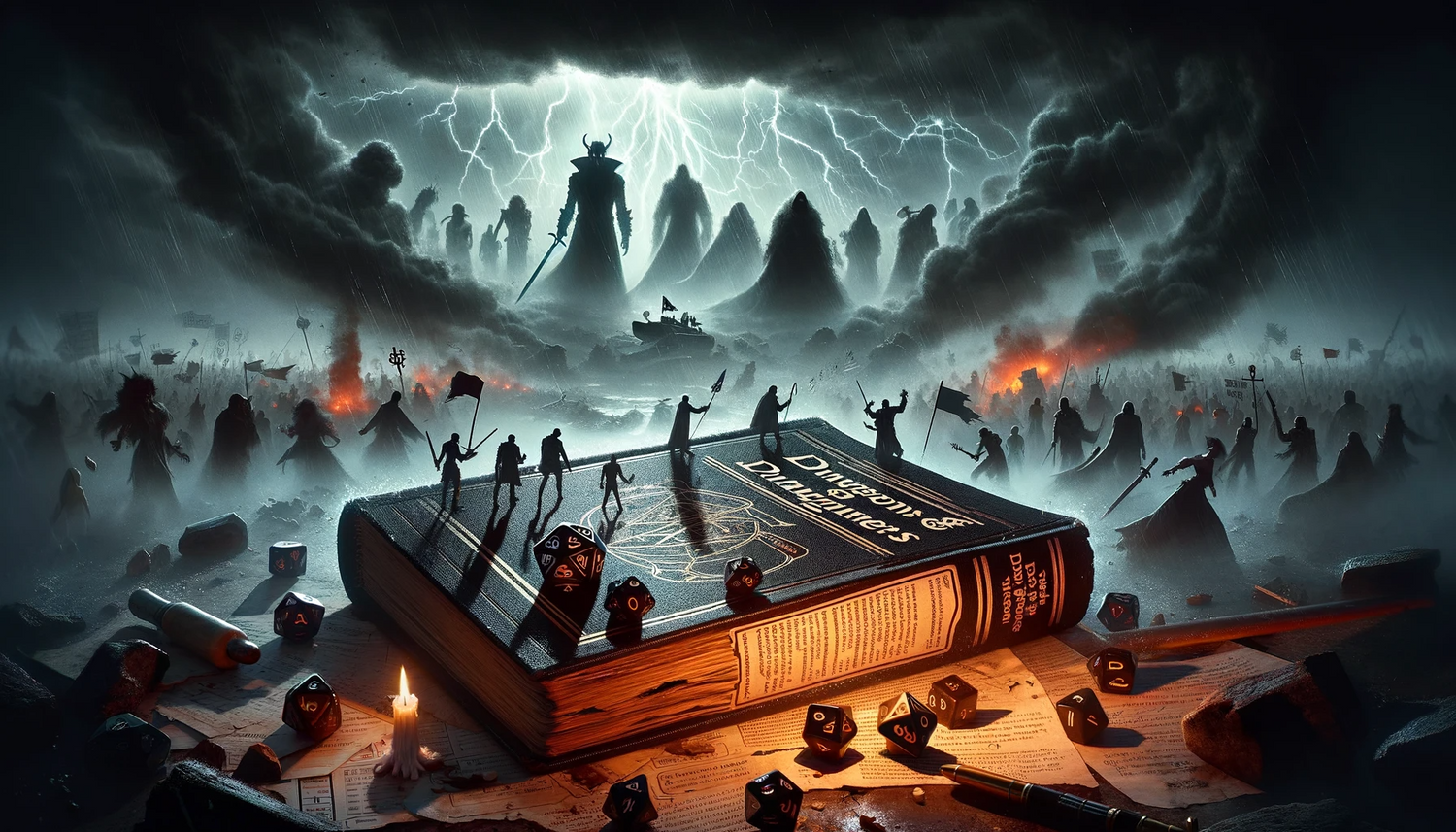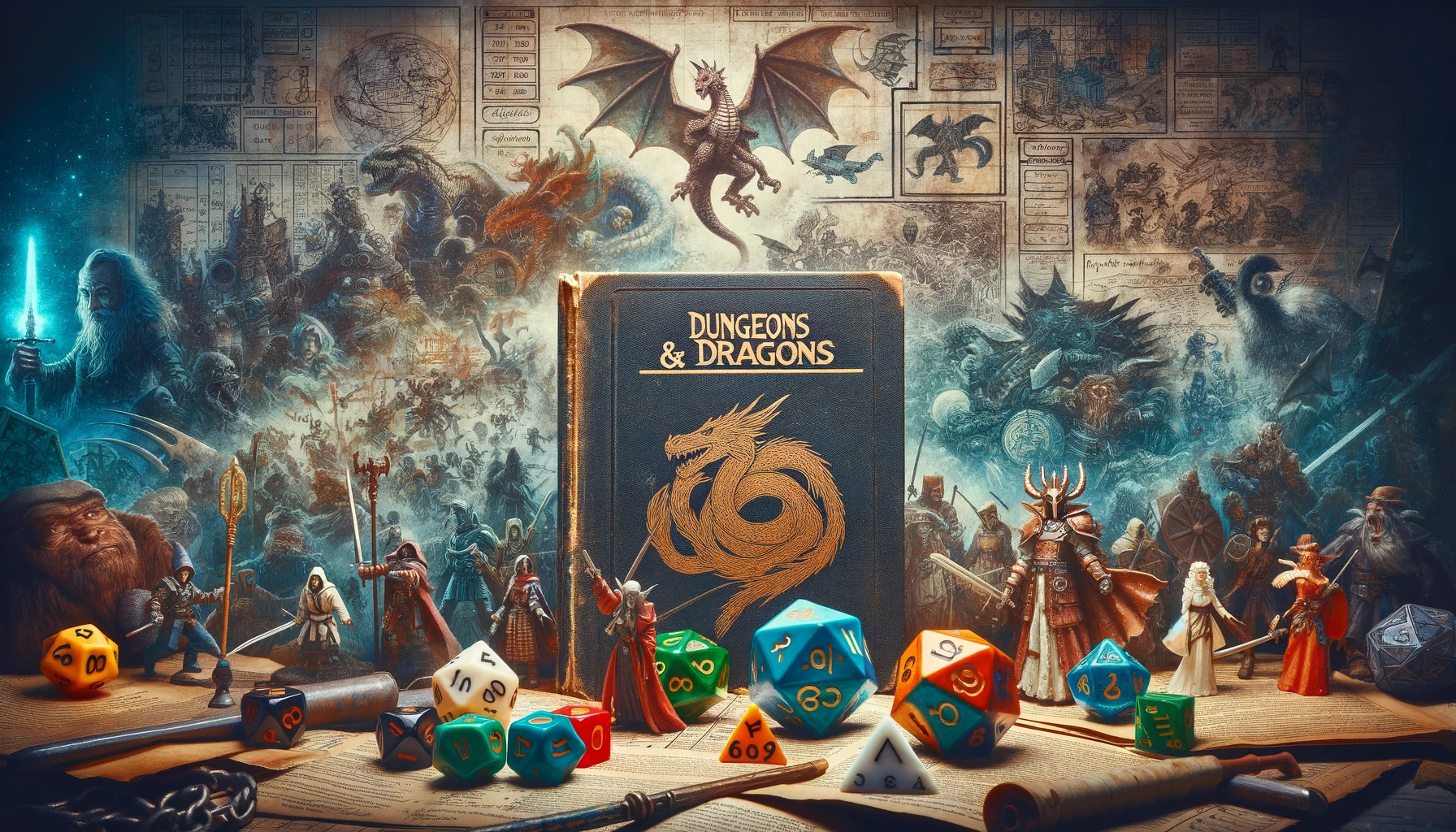Dungeons & Dragons (D&D), a pioneering name in the world of tabletop role-playing games, has not only enchanted millions with its imaginative realms but also faced its share of controversies and challenges. Delving into these aspects offers a nuanced understanding of D&D's journey and its impact on popular culture.
Early Years of D&D
The inception of D&D can be traced back to the early 1970s. It began as a game combining fantasy, strategy, and role-playing elements, quickly capturing the interest of a niche audience. Despite its innovative approach, the initial public reception was mixed, with many unfamiliar with such a gaming concept.
Moral Panic and Media Backlash
The 1980s saw a rise in moral panic surrounding D&D. Fueled by sensational media coverage, the game was often portrayed as a negative influence, mistakenly linked to occultism and violent behavior. This media backlash significantly affected D&D's public image, casting a shadow over its creative and social aspects.
Notable Incidents Sparking Controversy
Specific incidents, often misrepresented or blown out of proportion, further fueled the controversy. High-profile cases involving young individuals who were also D&D players led to a public outcry, with many falsely attributing their behavior or unfortunate circumstances to the game. This period marked a challenging phase for D&D, as it battled against widespread misconceptions and unfounded fears.
Legal Battles: A Glimpse into D&D's Corporate Struggles
D&D's parent company, TSR, Inc., faced several legal battles, particularly concerning intellectual property rights. These legal challenges highlighted the complexities of managing a rapidly growing franchise and the difficulties in protecting creative content in the gaming industry.
The Impact of Controversies on Game Development
In response to these controversies, D&D underwent significant changes in content and design. Efforts were made to clarify the game's nature and distance it from the misconceptions. This period saw a shift in marketing strategies and target audiences, aiming to present D&D as a game for everyone, emphasizing creativity and social interaction.
Community Response and Defense of D&D
Despite the challenges, the D&D community, comprising players, enthusiasts, and scholars, came forward to defend the game. They highlighted the positive aspects of D&D, such as its role in fostering imagination, social skills, and community building. Academic studies and cultural analyses also played a crucial role in debunking myths and establishing the game's cultural significance.
Overcoming the Stigma
Over time, D&D successfully moved past these controversies. The game evolved, adapting to changing times while retaining its core essence. The role of the community, along with a broader shift in societal perceptions of gaming and fantasy, was instrumental in this transformation.
D&D in Modern Times: A Resurgence
In recent years, D&D has experienced a resurgence, gaining widespread popularity and acceptance. Contrasting sharply with its early years, the game is now celebrated for its creativity, inclusivity, and ability to bring people together. This modern era of D&D stands as a testament to its enduring appeal and the strength of its community.
Conclusion
Reflecting on D&D's journey, from its humble beginnings to its current standing in popular culture, it is evident that the game has not only survived its controversies and challenges but has thrived. Dungeons & Dragons continues to inspire and entertain, proving that imagination and community can triumph over adversity.


